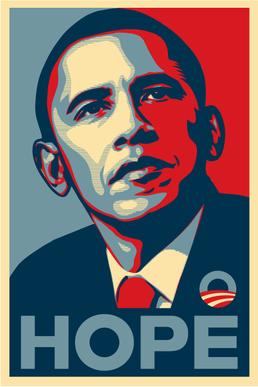As this blog draws to a close, I would like to take some
time to talk about one last election: the upcoming one. Up till now, all the
campaigns have been in the past and we know who came out on top in the end. Now
we have an actual race in progress to look at; one where the slogans are vying
for our attention.
As the final candidates have not been nominated yet, this
post will be looking at the forerunners of the Democratic and Republican
Parties.
For the Republicans, we have Ted Cruz, John Kasich, and
Donald Trump.
For the Democrats, we have Hillary Clinton and Bernie
Sanders.
To be fair and to avoid anything that can be misconstrued as
bias, I will be looking at each candidate in alphabetical order, regardless of
party.
Hillary Clinton – Her
official slogan is “Hillary for America” but it doesn't really have a ring to
it, so the line I’ll be looking at is the one on the posters: “Fighting for us.”
This line reaches out to all the people of America covered using only two
letters. “Us” is a powerful word when talking to people. It is entirely
inclusive and excludes no one. Furthermore, it does not alienate the candidate
from the people. It effectively says that everyone is in this together. The
choice of “Fighting” is a strong rhetorical choice as well. The verb
acknowledges that there are challenges ahead and the candidate is prepared to
take them on.
Ted Cruz – His official slogan is “Courageous Conservatives.” While this may not seem like much, it is extremely relevant in this election. The other major candidate for the Republicans is Donald Trump who has not-so-conservative ideas. Cruz is reaching out to the Republican voters who dislike Trump. His slogan states his type of beliefs and offers an alternative to Trump. Cruz also has a unique poster campaign. The word “Trusted” is displayed in all caps with the “Ted” part in red. When the word is said split like that, it sounds like “Trust Ted.”
John Kasich – His
official slogan is “Kasich for us.” This one is pretty basic. It is worth
pointing out that when written in all caps, “us” will look like “US.” The possibilities
both suggest that the candidate will make a good leader for the people and for
the country. To be honest, Kasich’s campaign isn’t at all flashy or catchy – it’s
much more subdued, potentially because he isn’t going for a delegate win.
Instead, he is trying to prevent Cruz and Trump from meeting the delegate
requirement and then snatch the nomination at the Republican National
Convention. According to The Atlantic, Kasich
can compete with the Democratic candidates if he were to be nominated by the
Republican Party.
Bernie Sanders – Sanders’
campaign has many catchphrases and flashy lines, but for me two stick out: “A
Future to Believe In” and “Feel the Bern.” With the first one, Sanders is not
implying he has plans for the future, instead he is telling the voters that they
can believe in it. The second slogan is fun. Like many of the catchiest
slogans, it is a play on words. “Feel the burn” is a slang term that often
refers to the feeling after exercising. The connection between this and
politics is minimal, but the fact that it exists shows that Sanders is not
afraid of reaching out to the younger voters. In fact, that seems to be one of
his major campaign goals.
Donald Trump – Here’s
a joke I read on the internet recently: Why does Trump want to ban pre-shredded
cheese? He wants to make America grate again. (It’s a joke. Laugh.) All kidding
aside, Trumps slogan has become fairly well known. “Make America Great Again”
is a shout out to the past and a promise for the future. “Again” acknowledges
the past accomplishments of America. Slogans like these often show up when a
candidate is looking to win over the presidency from the rival party. Trump’s
slogan blames Obama (a Democrat) for America’s current state and that is why
Trump (a Republican) should be elected president.
Out of all of these campaign slogans, I'm personally a fan of Sanders' chant. It has a unique fun feel to it that is seldom seen anymore. As far as which one is most effective, that will be up for the voters to decide in November.
Thanks for reading!





